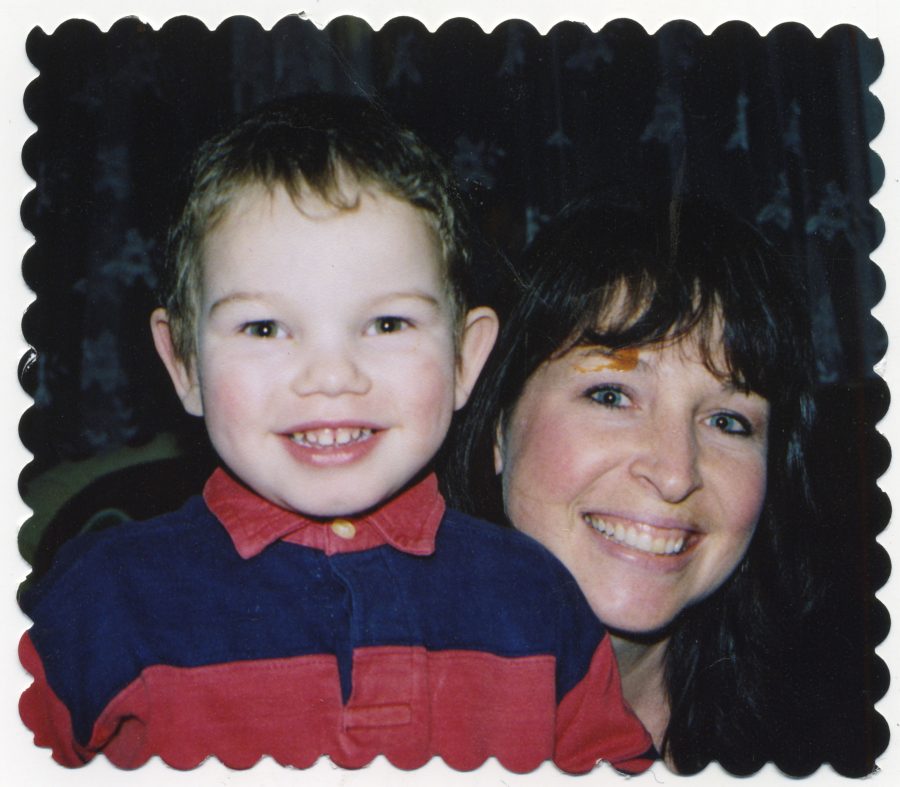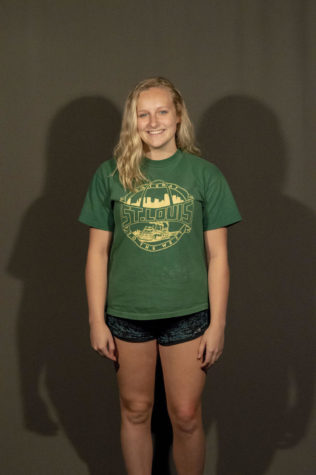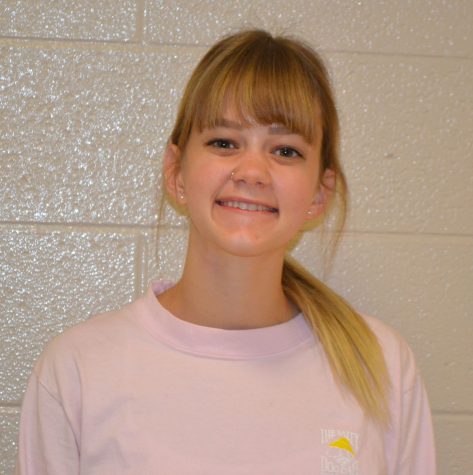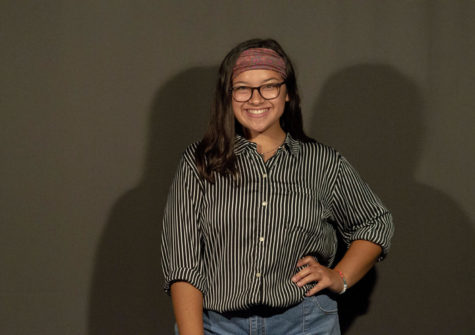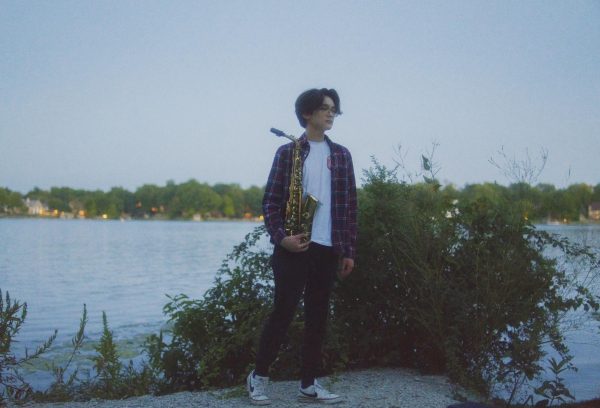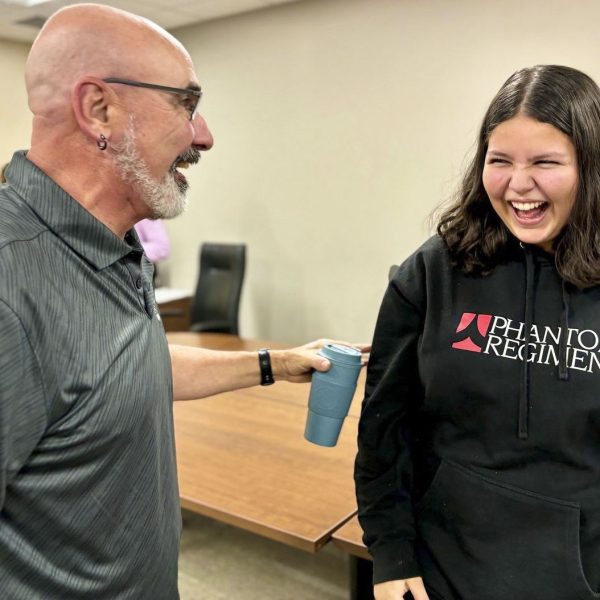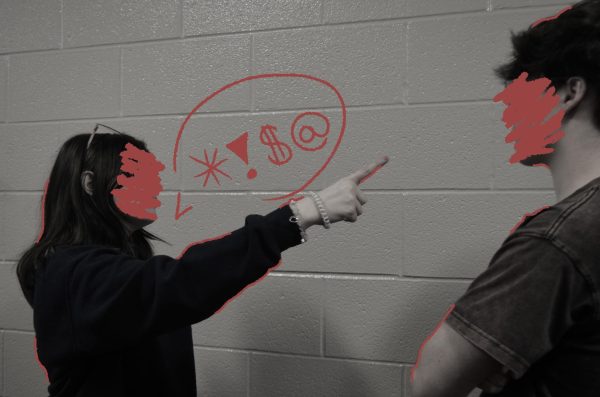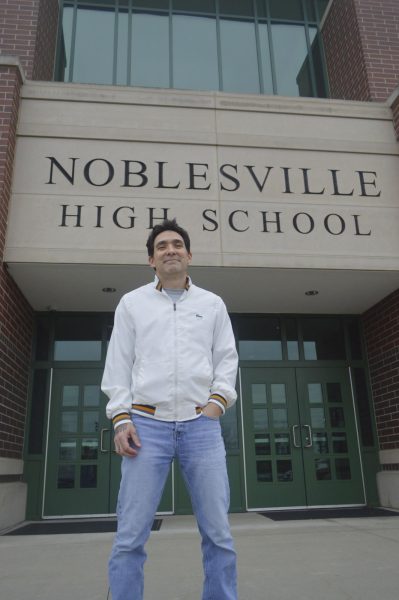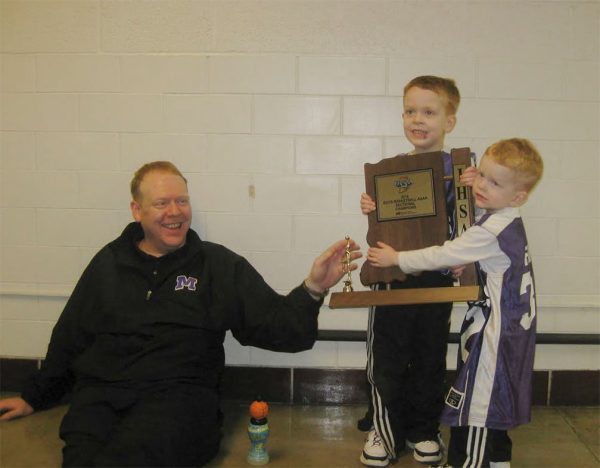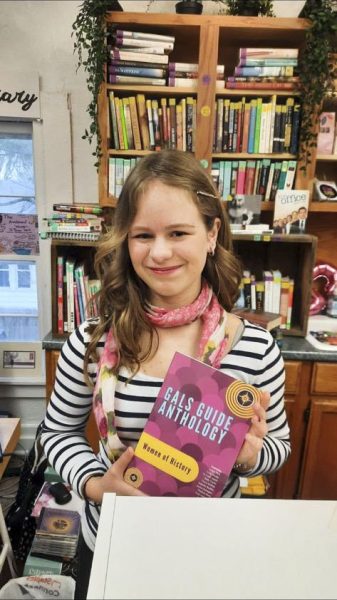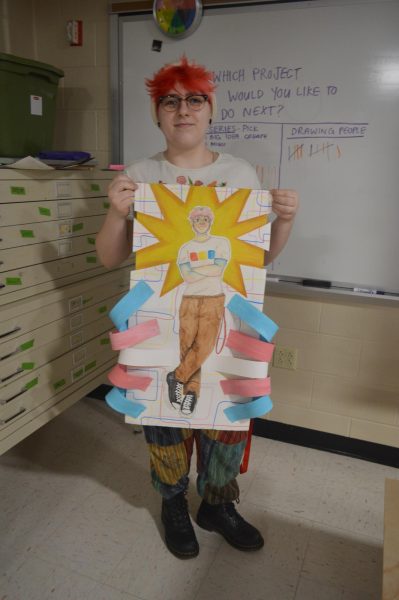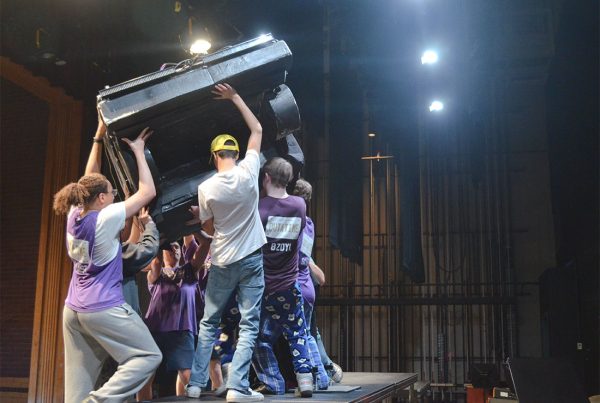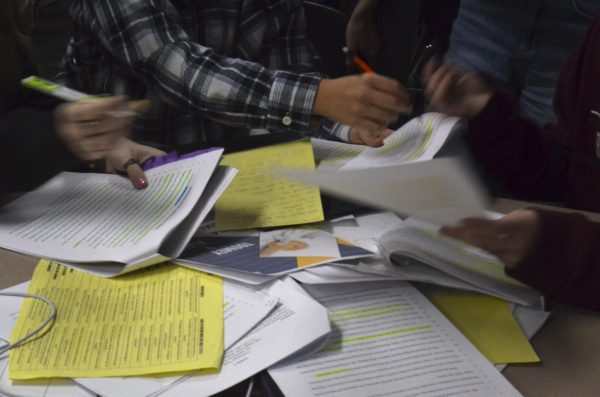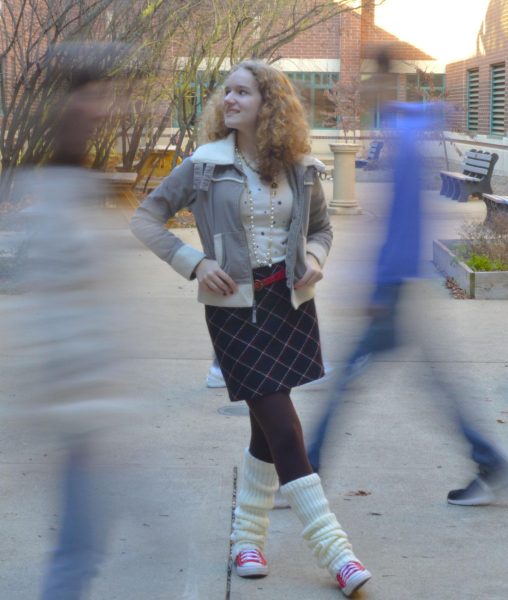Welcome home
How adoptees from near and far found their new lives in Noblesville
Max Megushar smiles next to his mom Beth Meguschar, an assisatant principal at NHS. Beth met Max at an orphanage in Tikhvin, Russia before Beth returned to adopt him.
December 22, 2016
In September of 1999, a woman gave birth to a child at Community Hospital North inIndianapolis. A few days later, that same woman walked out alone. Her baby left the hospital in the arms of a different family.
This baby, just like many other children, grew up with a loving mother and father, despite a lack of genetic connection. She experienced love, joy, friendship and heartache. However, the aftermath of her adoption affected her as she continued to grow up. “Who were her real parents?” She wondered. “What were they like?” She had a lot of questions. But despite her curiosity, she did have a home. She was loved.
Some adoptees face similar questions. These questions can sometimes be answered. On the other hand, some birth parents cannot have contact with their children until they are adults.
Adoption touches the lives of everyone involved. Siblings, parents, teachers and friends are affected by the adoption of a single child.
The next three pages showcase several of these stories. These individuals reflect on how adoption still affects them today and the journey they took to find their way home.
Unanswered Questions
Junior Brienna Beer was born at the Community Hospital in Indianapolis. Even before her birth, arrangements were already in place for her to leave the hospital with an adoptive family.
“My birth mom couldn’t take care of me,” Beer said. “I had several other biological siblings, and she also had a drug addiction, so it definitely wasn’t a good situation for a newborn baby.”
Beer, similar to other adoptees, did not grow up knowing who her birth parents were.
“My adoption was closed,” Beer said. “My birth mom has no rights and my birth dad has no rights. My adoptive parents met my birth mom when they came to pick me up from the hospital as a baby. My birth dad was never in the picture.”
As with most cases of closed adoption, Beer lived a life full of questions about where she came from.
“You want to know where you came from, and you just can’t know, ” Beer said. “When I’m 18 and legal, I’m allowed to go look for answers, but for now I’m not allowed to, and my birth mom isn’t allowed to contact me.”
Even with an understanding adoptive family, Beer’s adoption left her questioning her personal history.
“I have definitely over the years struggled with knowing where I came from, where my hair came from, where my eyes came from, and wanting to know stories about my biological family,” Beer said. “But my family has also made it very easy for me at the same time. I now have cousins who were adopted. I have a niece who was adopted. My family has adopted the idea of adopting other children.”
Beer said she is very grateful for her older sister Susan who recently adopted her own daughter from Arizona.
“Most adoptive parents have a fear that their kids want to know about their biological parents and that someday they’re going to want to find their biological parents,” Beer said. “Susan understands that I don’t want to replace my parents; I just want to know where I came from.”
Although Beer was adopted locally, she empathizes with adoptees from around the world.
“I don’t think a lot of people realize how many children in America are up for adoption and need homes,” Beer said. “But that doesn’t mean people shouldn’t go out of country to adopt. I have two cousins who are adopted from Ethiopia. They were left in a field to die.”
In-country and overseas adoptions each have their own specific requirements, but both circumstances can be an opportunity to help.
“There are children all over the world who need a home,” Beer said. “I don’t think it matters where you adopt them from because every child deserves a loving home and family.”
Sister By Chance
Taylor Flook and her sister Tori, juniors at NHS, are surprised they ended up in the same family.
“I was born in the Anhui province of China. I was nine months old when I was adopted,” Taylor said. “I needed to be adopted because I was in an orphanage, and I was a girl. At that time, China had a one-child policy and boys grew up and took care of their parents. Girls were undesired.”
Though she was born in China, Taylor shares struggles similar to Brienna Beer’s.
“It’s hard to be adopted sometimes because I will never get to know my birth parents’ name,” Taylor said. “I don’t have any information on them. “Not knowing is hard.”
While her curiosity may linger, Taylor says she plans to pay her adoption forward.
“In the future, I plan to adopt,” Taylor said. “It’s the idea of helping a child like my parents did for me. My life could have been so different if I wasn’t adopted.”
According to Taylor, she has many family and friends who are supportive of her background story.
“I’m grateful to have an amazing family. I do not have any blood-related siblings, but my two youngest sisters are also adopted from China,” Taylor said. “I also have like, five friends who are adopted. I’m grateful to know so many friends who are going through what I have gone through.”
Tori, also from China and closest in age in the family to Taylor, was adopted three years after Taylor..
“I’m glad that I’ve been adopted,” Tori said. “I probably would’ve had a better life [here] because of the circumstances of my adoption.”
Tori, like her sister, also has future plans to expand her family past blood relation.
“It always inspires me to have a multiracial family and to adopt from each continent so I can have a big family,” she said.
Taylor believes that all children should have a chance to live under the best circumstances, even if it means they are not with their birth parents.
“[To me,] adoption means giving a child an opportunity to have a better life because sometimes a parent has to make the decision to do what’s best for their children. Sometimes, it means they have to let them go in hopes their child [will] have a better future.”
It Takes Two
Twins Jada and Jewell Hensley, born in China, lived in an orphanage in Dainbai until they were adopted together at thirteen months old.
The sisters have been together their entire lives.
“I’m grateful [our adoptive parents] were able to accept both of us into the family, because it’s very difficult to get siblings in the same family and not get separated.” Jewell said. “I’m just grateful that I’m able to be with my sister, and grow up with her, and know that she’s always there, and not across the country.”
Although they had a closed adoption and are not legally able to speak to their birth parents, Jada Hensley said that she seldom wonders about what her birth parents are like.
“[Adoption] is just like a part of our lives,” Jada said.
According to Jewell, growing up in America has been very natural.
“It hasn’t hit me that hard, that I’m living with people who don’t have the same DNA as me,” Jewell said. “But once in awhile, I do think about if my biological mom thinks about me, or cares about me still.”
Jada agrees.
“It doesn’t…really faze me that I’m adopted,” Jada said. “I think it’s cool.”
The twins plan to someday visit China together.
“We do have a sister group from the orphanage,” Jewell said. “For our future birthday, we’ll all get together and travel and adventure China and our home for the first time together. Even though I’ve grown up in America, I still want to know what my home life would have been if I stayed in China.”
Although Jada and Jewell both grew up in America, they carry a reminder of their culture with them wherever they go. The names that they were given at birth in China are now their middle names.
“Mine is Xiufeng and [Jewell’s] is Xiufen,” Jada said.
The sisters say they have grown close because of the experiences they share.
“It’s helped me get used to different environments because I have somebody to talk through it with,” Jewell said. “It’s just an easier connection.”
According to Jada, having a twin who shared the same experience makes coming to terms with her adoption much easier.
“I don’t know what it would be like without having [Jewell],” Jada said. “It’s easier… having someone next to you.”
A Parent’s Perspective
Beth Meguschar describes her choice of adoption as a “calling.”
“Visiting the orphanage was quite an experience,” she said. “It was in kind of an old and desperate town. In meeting the caretakers, they seemed so well-intentioned, they were just so out-numbered. There were probably about 60 kids in that little home and the most I could see were two or three caregivers at any given time.”
Max was adopted into the Meguschar family when he was four years old.
“He did not know English at all,” Beth Meguschar said. “We all studied Russian so we could communicate a little bit, but within six weeks of being home, he couldn’t speak a lick of Russian. It was amazing to me how quick his brain learned English.”
Although it hasn’t always been easy, Beth says Max brings something unique to their family.
“Something he’s brought us and the rest of our kids is a real resilience,” Beth Meguschar said. “I think it’s also been humbling. Everyone wants to know their roots. I’ll never forget, in middle school, he did a class project on Russia and it stirred up question. He’s also brought an interest in other cultures.”


